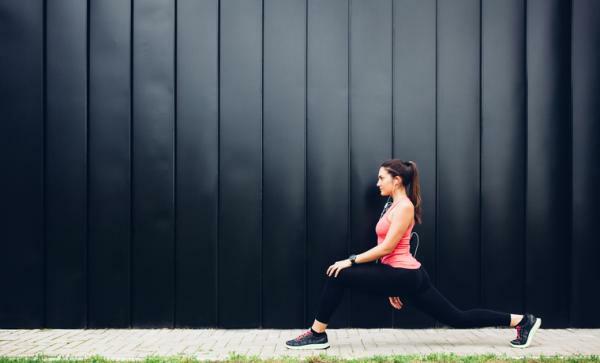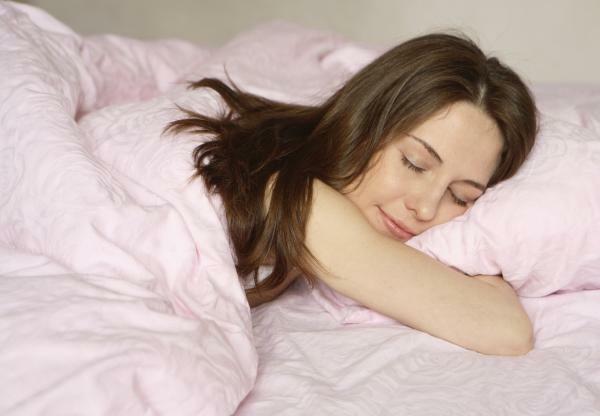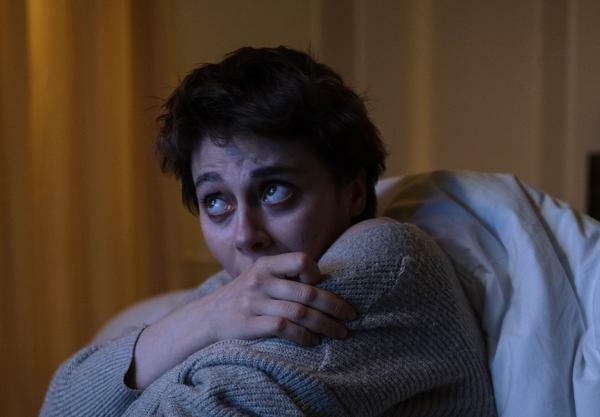Once the anxiety problem is detected, it is necessary to fight so that it does not make a dent in our day to day life. It is important to be able to relax or, at least, keep a state away from anxiety attacks. To do this, in this PsicologíaOnline article, we will offer Techniques to lower anxiety.
Index
- Exercise
- Sleeping and eating habits
- Deceleration
- Activity planning
- Pharmacological help
- Relaxation techniques
- Manual activities
- Sexuality
- Social activity
Exercise.
Proper exercise helps us to tone muscle, avoiding both stiffness and excess activation of the nervous system, promoting a healthy tiredness that favors restful sleep and calms excess thoughts and rumination.
If our physical condition is unfortunate (we have symptoms such as dizziness, vertigo, nausea) and we cannot tolerate intense exercise, we can choose Spread it out in small pieces throughout the day and start at a very gentle pace until you gain enough well-being to tackle greater efforts. substance.
It is preferable practice a playful sport that we like or have enjoyed it in the past, since incidentally it will provide us with greater satisfaction than cold and heavy gymnastics.

Sleeping and eating habits.
The overexertion that comes with a disorderly life weighs in on its own as a stressor in the overall result of excessive anxiety.
Not a few people have become accustomed to a chaotic eating and overly tight or irregular sleep schedules, which as long as their strength allows it, seem at first glance to have no negative consequences (by the way, it is the same argument that leads to start smoking, because it seems, in the early years, that the habit does not present any harm or annoyance that veteran smokers complain about).
Regulating sleep, so that it is sufficient and that the body finds relief in being able to adapt to a systematic routine, can help reduce tension.
A varied and not too heavy diet favors the control of many gastric symptoms that are favored in a state of anxiety (diarrhea, constipation, gas, stomach discomfort, etc). Many people detect their degree of anguish by the sensations it produces in their stomach, others by the sensations of dizziness in the morning: it is not convenient for both of them to complicate themselves with a diet inadequate.
A high degree of anxiety influences that the moment of falling asleep is more difficult because bursts of thoughts appear in the mind that we awake or we dedicate ourselves, at the moment that we would have to rest, to tire ourselves with heavy examinations of conscience and arduous preparations for the day following. The result is that we steal time from sleep because our state is too fragile to withstand these provocations.
It would be advisable that while we cannot regain the ability to fall asleep quickly Let's help ourselves by choosing a different time for reflections and planning for the day. Let's save it for the next morning. In return we will relax thinking pleasant things or reading an article of those that induce us to fall asleep. If we are more than 15 'stirring between the sheets without being able to sleep, instead of making us bad blood, it is preferable to get up and continue reading the heavy article or watching a boring television program until we notice that our eyelids are heavy and then we return to the bed.
The anxious person can easily be tortured by the fact that if it is difficult for him to fall asleep he will have difficulties to be clear the next day and is tormented by the idea that the hour of the wake up. It is better in this circumstance to consider that if one has to sleep a few hours it is better to accept it not because of insisting, protesting or complaining to sleep even less. Neither his condition the next day will be so regrettable nor is it possible to think - unless he becomes obsessed with the fact that the process is repeated fatefully - that in the following days his own organism will fight for recuperate.
The same anticipation or fear that we may still not sleep well can cause us to sleep poorly (similarly that the fear of being assaulted by a razor in a dark alley causes us not to walk quietly through that place). We must remember to fall asleep is something passive, not something that we do with a lot of effort of will and that we provoke with the whip of the phrase "I have to sleep!" Consequently, the method to get the dream to come, without being scared seeing the panorama of how we expect it, is to do nothing, not even think about it, simply living the day well (so that restlessness does not ask us for last-minute consolations), and ending the night well with neutral activities (neither too exciting nor too unpleasant).

Deceleration.
Faced with a stressful situation, a certain lowering of our aspirations is imposed. We cannot force the march to fit more things in the same period of time, and we must select with relevance criteria, trying to delegate or postpone the rest.
Even if we manage to reduce the amount, we can be so accelerated that we go with the same haste and speed as when we were busy, leaving gaps of sudden inactivity like someone who eats the food on the plane at a glance and not seen and spends the rest of the meal nervously waiting for others finish.
Slow down means slow down all our movements by forcing a "walking speed", betting on rejoicing in the perfection and polish of what we carry in our hands (for example, writing with very good handwriting, select the words, expand the sentences by going into details and considerations, review the work or make small improvements creative).
The sensations of emptiness must be filled with something that helps us not to lose our minds in the face of that unbearable fissure, paying careful attention to what surrounds us observing well as Shelock Holmes where I am, as is the person I am with, playing to create something fun, entertaining and relaxed to offer enjoyment to the time that passes and that thus passing becomes a to live.
Activity planning.
The wisdom and cunning When planning our activities, it is another very convenient tool to reduce tensions, knowing how to insert appropriate breaks to alleviate the growth of the anxiety or changing the type of task to a softer or more bearable one, until you regain your good mood and face the harshness of the day with always surplus energy instead of fainted.
We must not forget that at the end of the day we have to give satisfying different needs and not neglecting them It is a way of harmonizing ourselves, spending time with friends, our readings, music and personal pleasures, having moments of affective contact. Being the different selves that we are, we review and strengthen the skeleton and the fabric that supports us.
Pharmacological help.
If the symptoms of anxiety or the consequences it reports in psychosomatic disorders (those in which stress is a risk factor, trigger or aggravating factor) are too unpleasant or disabling, we can turn to a help pharmacological.
Sedatives and anxiolytics can be of great help, above all if we give them a modest role of support, putting our interest and firm purpose of changing bad habits, suppressing the causes that produce anxiety and learning to improve our control emotional.
It is insufficient and dangerous consider tranquilizers as a drug that gives us relief to continue doing what we were doing, but without consequences unpleasant (kind of like someone asking their doctor for a stomach pain medicine so they can continue to binge on their whim).

Relaxation techniques.
Relaxation exercises, breathing and yoga they are as powerful as a drug, although somewhat more laborious. It can be a good investment to learn these techniques because they will not only be useful to face the current moment, but they will help us to take care of ourselves against the stresses that the future will bring us.
Manual activities.
Manual activities are very convenient for people who have intellectual anxieties and concerns. Artistic and DIY hobbies make us come into contact with simple objects and soften us, causing us to sink our roots into reality. Enjoying nature has a similar beneficial effect.
People whose stress has a physical origin (unstoppable bustle, fluttering children, intense physical exertion, brutalizing mechanical operations, etc.) are interested in rather the opposite, leaving the body parked and making the spirit work with things that stimulate intelligence (not that stun, such as stretching on the sofa and watch television for hours), such as a learning activity (languages, computers, courses) or an associative activity (apa, neighborhood, NGO, etc.) or playful.
Sexuality.
If you have a partner, you should pay attention and use it, since we have it, trying to cultivate mutual attraction. The satisfying sex (avoiding being demanding, compulsive or routine) have a very beneficial effect to scare away accumulated tensions. It may be a good time to improve communication and the art of loving.

Social activity.
Increase social life, bond, participate in conversations, informal meetings and cultivate friendship, These are positive and laudable ideas in themselves and should not be put aside thinking that "retreat" and isolation will reassure us more (the idea of the spa on a lost mountain).
Indeed there is a form of relaxation that is simplify (lying down, not seeing anyone, doing nothing, being stunned by things that do not complicate our lives) and there is another form of relaxation that comes from satisfaction and encouragement, of having bothered to do something with a certain quality, having taken an interest in others and in the external world (the idea that the world around us is a Spa).
Particularly it is convenient to calm down through the bond with the affective, with the vitalizing contact with the people around us, from the neighbor to our partner or family.
This article is merely informative, in Psychology-Online we do not have the power to make a diagnosis or recommend a treatment. We invite you to go to a psychologist to treat your particular case.
If you want to read more articles similar to Techniques to lower anxiety, we recommend that you enter our category of Clinical psychology.


